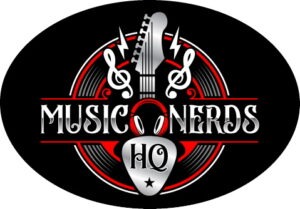
When people initially want to learn to play an instrument or play in a band, the guitar is the first thing most people think of. But is that the best way to get started, and is bass easier than guitar?
Here is what I know from playing both:
Bass guitar can be easier to learn than the guitar as it only has 4 strings instead of 6. And, much of the time on bass, only 1 string is played at a time. However, the thicker strings of the bass can hurt uncalloused fingers more and the additional weight of the bass guitar can put added pressure on the back.
Everyone thinks that being a bass player is the easiest way to get in a band without trying hard.
But if you are a bassist and a guitar player like me, you know there is nothing easy about this craft. And both are crucial to most bands’ sound.
Let’s examine whether the bass is easier than guitar:
cliff burton (metallica bass guitar) 10/02/62 – 27/09/86 pic.twitter.com/wtgi6VqK
— Ángel saga ♪♫ (@AngelSaGa7) September 28, 2012
Is bass the easiest instrument to learn?
Bass is easier to learn than guitar and much easier to learn than the violin, piano, or drums. The basics of a simple rock song can be learned on the bass in just 1-2 weeks of daily practice.
The bass is an easy instrument to learn as long as you are determined to understand it and have the patience to master it.
It has several functions in the band, such as supporting the chords and the melody, completing the rhythm section, and acting as a bridge between melodic and rhythm instruments.
The bass is flexible and allows textures to support the melodic instruments such as lead guitar. But bass doesn’t always have to take a back seat to the guitars.
For example, just think about some of the in-your-face bass lines from these top bassists:
- Les Claypool
- Geddy Lee
- Peter Hook
- Chris Squier
- Cliff Burton
The basics of bass may be relatively easy to learn, but you’ll just be wasting your time without the right bass and the right attitude.
More importantly, the question of comparing instruments is exponentially a vague concept because each device demands building a sound foundation of rhythm, coordination, and calluses.
Given the accessibility, the bass is also among the top choices for many when they want to start learning an instrument. And this is especially true of those who aspire to be songwriters too.
Do all songwriters play an instrument?
Read my recent article to know why most artists learn at least one instrument to write music. But which instrument is most commonly played by songwriters, and is it even possible to write a song if you don’t play an instrument?
Just click on that link.
Happy Birthday #PeterHook great bass guitar in @joydivision and @neworder pic.twitter.com/UmAkRqXazA
— Rockfiles (@r_files) February 13, 2017
Is bass more fun than guitar?
Guitar is undoubtedly more fun to play than bass for many musicians. Guitars can usually make a much wider array of sounds and garner much more attention from music fans.
But bass isn’t subordinate to the other instruments.
It gives music the structural support it needs to be called complete. Some musicians were primarily guitarists for years but switched to bass for the love of it.
It’s a matter of choice which instrument individuals enjoy playing the most. The point here is the general love for just making music and enjoying it.
Against common assumptions that bass is for failed guitarists, the bass playing is equally fun.
Read my recent article to find how famous artists like Paul McCartney, John Deacon of Queen, and Geezer Butler of Black Sabbath changed the image around bassists. But did they play bass because they couldn’t first hack it as a guitar player?
Just click on that link.
The virgin guitar vs the Chad bass pic.twitter.com/IEEnOnfqm7
— compy (@compy905) March 17, 2021
How is playing bass different from guitar?
Bass and guitar differ in the number and thickness of strings, the length and weight of the instrument, but also typically, the bass locks in with the drums rhythmically and creates a foundation that the song is built on whereas the guitar is more dominant in the mix and often more melodic.
But of course, there are exceptions to everything we’re talking about. So don’t look at my comments as being absolute.
Let explore some of those differences between a bass and a guitar in greater detail:
- Size: Bass is typically 5-9” longer than an acoustic or electric guitar.
- Strings: Guitars typically have six strings. Bass usually has only four. There are exceptions, however, for both.
- Role arrangement: Bass acts as a supporting instrument in conjunction with the drums, while the guitar is responsible for carrying the main melody of a song and is generally more out front and less in the background. Of course, there are exceptions here too.
- Freedom of expression: The guitar offers the possibility of more musical expressions due to the wider array of types of guitars, amps, and effect pedals.
It is a versatile and leading instrument. 80% of the time, in rock music, the sounds, types, and styles of the bass are very similar.
For example, think about the difference between John Mayer on guitar and Tom Morello. But then, if you think about the bass players behind both of them, the sound is fairly similar.
My Views on Guitars
Electric guitars were invented almost 100 years ago and, since then it has grown into something bigger than just a six-stringed instrument that makes some noise.
It used to be the core of pop music from the 1950s to the 1970s. But it has since taken a backseat to synthesizers. It still is an unquestionable part of various genres such as rock metal, jazz, and blues.
But there will always be a few truly exceptional guitarists who dominate the decade, no matter what decade we’re talking about.
Some of those guitar legends include:
- Eddie Van Halen
- Jimi Hendrix
- Tom Morello
- John Mayer
- Brian May
- Carlos Santana
- Kurt Cobain
- Les Paul
My Views on Bass
Bass has thicker strings and a longer neck. While the 4 strings are typically tuned to the same notes as the 1st 4 strings on the guitar, the bass is 1 octave lower.
This is what allows it to cut through the noise to provide that solid foundation.
Some of those bass legends include:
- Les Claypool
- Cliff Burton
- Chris Squire
- Geddy Lee
- Mark King
- Pino Paladino
- John Entwistle
- Paul McCartney
- Peter Hook
Marshall Sealy, French Horn.
Shoot for the Gateways Music Festival#marshallsealy #frenchhorn #gatewaysmusicfestival #classicalmusic https://t.co/9dDFUMLmEb pic.twitter.com/bjUi8jVXxg— Kristofer Dan-Bergman (@KristoferDB) August 30, 2021
What is the hardest instrument to play?
Each musical instrument can pose a different challenge to learn at first, but the chromatic accordion, baroque cello, didjeridu, and French horn are the hardest to play compared to the guitar, bass, piano, or even violin.
What makes an instrument hard to learn is its characteristics and the learning curves that it involves. Some instruments are so complicated that even the most accomplished musicians feel difficulty in playing them.
Here are the top hardest instruments to play:
Chromatic Button Accordion
The Russian Bayan is one of the most spectacular and respectable instruments ever designed. But you need a teacher to instruct you through the hundreds of buttons arranged in an unintuitive order.
Baroque Cello
The bowed instrument is difficult to coordinate and intonate. Cello has longer strings, which demand the most hand movements to accomplish a note beautifully. In addition, it takes a proper technique and callus to form tones, or else the instrument can cut through the flesh.
Didjeridu
Musicians describe learning the instrument as something that requires the lungs of a triathlete and the lips of an oboist. It is traditionally played using a circular breathing style.
The French Horn
The French horn is organically the most challenging instrument.
The quavers (8th note) woven closely demand the players to engage in repetitive valve fingering. Then there is breath support to maintain.
Playing any instrument requires a combination of physical and mental components and feeling an instrument’s vibration. It depends on the choice of instrument you feel more connected with.
GEDDY LEE Is Grateful For JOHN PAUL JONES’s Participation In New Bass Guitar Book https://t.co/2g6mnEP6s1 pic.twitter.com/Ve517dHLaO
— BLABBERMOUTH.NET (@BLABBERMOUTHNET) December 17, 2018
Is bass fun to play alone?
Bass is fun to practice, but it does not lend itself to solo performances as well as a guitar does. This is because a guitar’s ability to play chords gives a fuller, richer sound to back up a singer. Hence, it is rare to see a singer/songwriter performing by themselves on bass.
But there are some bassists who would just sound phenomenal all by themselves. For example, listen to Victor Wooten, Marcus Miller, Simon Gallup, and others.
Curious to know what kind of a bass player Simon Gallup is?
Read my recent article to check out how The Cure’s former bassist has been making heads turn with his bass skills. And of course, his recent departure from the band after 40+ years has shocked a lot of people.
Just click that link to read it on my site.
But just because you don’t have a band yet doesn’t mean you can’t have some backup. You can play to backing tracks or drum tracks off of YouTube or use looper pedals and achieve a fuller sound, even if you are a beginner.
And you will find admirers in the crowd eventually once you get on stage.
There will always be listeners in the crowd who love bass, and maybe because of that, you can still focus on honing your craft. You know bass isn’t a substitute for guitar, but it gives the song the grooves music needs.
Whether you play Bass alone or with a band isn’t relevant. The more pertinent question is- Do you love playing Bass? If you do, then begin practicing.
Conclusion
Over the long term, the bass isn’t easier than the guitar.
But by the same token, the guitar isn’t easier than the bass. This whole guitar vs. bass misses the point entirely. Some instruments might be easier to get started with, but mastering either will always take years of dedicated practice.
The truth is music isn’t a competition.
If you are an absolute beginner, you can try any instrument to decide which one makes you feel more at home. Think about what you’re most drawn to when you listen to music.
If you like the raw, visceral feeling in the instrument, then go for bass. And if you love strumming in the middle of a mix or even playing soaring melodies over the top, then go for guitar.
Above all this, don’t pick an instrument based on which one is easier to play. Choose what you enjoy the most.
Image by meisjedevos from Pixabay
